GIS, or Geographic Information Systems, play a crucial role in nature conservation. Every day, mapping and spatial analysis are aiding conservation decisions, protected areas designation, habitat management on reserves and monitoring of wildlife populations, to name but a few examples. Want to learn more about how remote sensing is used in conservation? Check out the first two episodes of this season of Tech Tutors, where our Tutors answer the questions How do I use open source remote sensing data to monitor fishing? and How do I access and visualise open source remote sensing data in Google Earth Engine?
You can also check out our Virtual Meetup Archive for a range of panels that overlap with Remote Sensing & GIS topics.
- 0 Resources
- 0 Discussions
- 5 Groups
Spanish veterinarian interesting wildlife conservation
- 0 Resources
- 0 Discussions
- 9 Groups
- @MoniqueWSheSS
- | She
Wildlife enthusiast and Research assistant
- 0 Resources
- 0 Discussions
- 2 Groups
- @CathyNj
- | She
Catherine Njore is a seasoned Cartographer with over 17yrs experience and specializing in children cartography. She recently designed a Cartography: Fun with Maps Program(CFMP); a program that assists children to learn how to draw, read and use maps effectively.

- 1 Resources
- 8 Discussions
- 6 Groups
Data Science | Remote Sensing | GIS | Geospatial Cloud Computing | Big Data
- 0 Resources
- 0 Discussions
- 4 Groups
Conservation Biologist
- 0 Resources
- 0 Discussions
- 5 Groups
Technical Specialist at FFI: loves data management, maps, remote sensing & GIS for conservation

- 0 Resources
- 2 Discussions
- 3 Groups
- @TaliaSpeaker
- | She/her
WILDLABS & World Wide Fund for Nature/ World Wildlife Fund (WWF)
I'm the WILDLABS Research Specialist at WWF-US

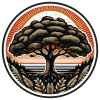

- 12 Resources
- 54 Discussions
- 24 Groups
Sustainability Manager for CERES Tag LTD. An animal health company; animal monitoring, conservation, & anti-poaching/ rural crime. Wildlife, livestock, equine & companion. #CeresTrace #CeresWild #CeresRanch




- 2 Resources
- 19 Discussions
- 24 Groups
- @KKAREGA
- | him
- 0 Resources
- 0 Discussions
- 1 Groups
Worked as a mechanical engineer for a defence co, then software engineer, then for a research lab specialising in underwater robotics.
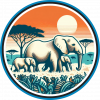
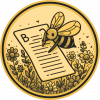

- 1 Resources
- 135 Discussions
- 16 Groups
I'm a Mechanical Engineer and I have been involved in test and measurement, IT maintenance consulting, database development, field installation, field maintenance, systems analysis, theater composition and an active synthesist. Currently engaged in conservation volunteer work
- 0 Resources
- 0 Discussions
- 7 Groups
Watch our interview with pioneering, young vulture researcher based in Tanzania, Vainess Laizer whose research investigating the breeding success of White-backed Vultures in the Western Corridor of the Serengeti...
16 April 2024
ZSL is looking for an enthusiastic research scientist to join the multidisciplinary team and help deliver a project in Wales to better understand the ecology of tope sharks (Galeus galeus) in North Cardigan Bay and the...
9 April 2024
WWF is looking for consultant(s) with expertise in spatial data mapping and analysis.
19 March 2024
The Smithsonian’s National Zoo and Conservation Biology Institute (SNZCBI) is seeking two postdoctoral fellows to engage more directly with identifying conservation metrics for vertebrate communities and populations.
14 March 2024
The Max Planck Institute of Animal Behavior at its sites in Constance and Radolfzell offers an international, interdisciplinary, and collaborative environment that opens up unique research opportunities. The goal of our...
13 March 2024
Texas A&M is seeking applicants for a fully funded Ph.D. assistantship to begin a long-term study on collared peccary (also known as javelina) ecology in southern Texas.
13 March 2024
Emerging trends for Nature-Based Solutions project assessments
8 March 2024
Join us to help prevent biodiversity loss! Understory is hiring a postdoc to lead R&D Development on generalizing Computer Vision models for vegetation identification across space/time/phenotypes.
29 February 2024
Is there really a sustainability data deficiency? We don’t think so.
29 February 2024
Join the Luxembourg Institute of Science and Technology (LIST) in pioneering environmental and ecological monitoring! 🌍💡 As part of ERIN’s Observatory for Climate, Environment, and Biodiversity (OCEB), you'll be at the...
26 February 2024
How Earth Blox reduced biodiversity impact analysis from 2 months to 1 hour for a global bank.
20 February 2024
The primary focus of the research is to explore how red deer movements, space use, habitat selection and foraging behaviour change during the wolf recolonization process.
10 February 2024
April 2024
May 2024
July 2024
March 2024
event
event
| Description | Activity | Replies | Groups | Updated |
|---|---|---|---|---|
| Calling practitioners working in connectivity... we're doing some thinking around modelling functional connectivity, and the data that... |
|
Remote Sensing & GIS | 4 days 15 hours ago | |
| Thank you Carly, I will definitely take a look. |
|
Acoustics, Biologging, Climate Change, Conservation Tech Training and Education, Data management and processing tools, Remote Sensing & GIS, Software and Mobile Apps | 3 weeks 5 days ago | |
| We will be conducting in-person demos of our cutting-edge drone technology in the US this year! 🇺🇸 If you're interested in experiencing... |
|
Biologging, Drones, Remote Sensing & GIS, Software and Mobile Apps | 2 months ago | |
| Am working on similar AI challenge at the moment. Hoping to translate my workflow to wolves in future if needed. We all are little overstretched but it there is no pressing... |
|
Camera Traps, AI for Conservation, Build Your Own Data Logger Community, Data management and processing tools, Marine Conservation, Protected Area Management Tools, Remote Sensing & GIS | 2 months 2 weeks ago | |
| Real nice video. I'll have another look in the weekend in detail. |
+10
|
Acoustics, Community Base, Protected Area Management Tools, Remote Sensing & GIS, Sensors | 2 months 2 weeks ago | |
| Hi!I would take a look at Although developed for camera trap imagery, it is by no means restricted to such.Cheers,Lars |
|
Camera Traps, Community Base, Data management and processing tools, Drones, Emerging Tech, Remote Sensing & GIS, Software and Mobile Apps | 2 months 3 weeks ago | |
| Thank you for the links. As a trainer in GIS I have gone through them and they are very helpful for a beginner in QGIS. |
|
Remote Sensing & GIS | 2 months 3 weeks ago | |
| Thank you for this! Will take a look. |
|
Climate Change, Conservation Tech Training and Education, East Africa Community, Remote Sensing & GIS | 3 months ago | |
| Appreciate that Lars! |
+20
|
Biologging, Remote Sensing & GIS | 3 months 2 weeks ago | |
| Hi Eva, Me and my colleagues run a small NGO based on Yogyakarta in Indonesia, although our projects are spread around the country. One of our active project is working with... |
|
Community Base, Biologging, Citizen Science, Climate Change, Human-Wildlife Conflict, Marine Conservation, Remote Sensing & GIS | 3 months 3 weeks ago | |
| I am not an acoustics person but train and deploy canines in the field. Are you looking for something that records sniff rate and patterns? For GPS I just use a Garmin... |
|
Acoustics, Biologging, Remote Sensing & GIS | 3 months 4 weeks ago | |
| In what ways can drones contribute to linking individuals, communities, and small-scale producers in rural areas, facilitating the support... |
|
Drones, Remote Sensing & GIS | 4 months ago |
Thinking About Getting Started in a Career in Conservation Technology with Vainess Laizer
 Esther Githinji
Esther Githinji
16 April 2024 1:34pm
Modelling functional connectivity?
11 April 2024 11:55am
Applied hierarchical modelling (AHM) for species distribution and abundance
9 April 2024 7:22pm
Post Doctoral Research Assistant at ZSL
9 April 2024 7:03pm
ibm-nasa-geospatial (IBM NASA Geospatial)
28 March 2024 9:22am
NASA and IBM have teamed up to create an AI Foundation Model for Earth Observations, using large-scale satellite and remote sensing data, including the Harmonized Landsat and Sentinel-2 (HLS) data.
Catch up with The Variety Hour: March 2024
21 March 2024 7:39pm
30 March 2024 3:08pm
31 March 2024 12:43pm
Leveraging Actuarial Skills for Conservation Impact
15 March 2024 12:31pm
19 March 2024 6:35pm
Thank you for your response Akiba. I will have a look. 👏🏻
19 March 2024 7:52pm
I would look into the TNFD (Taskforce on Nature-Related Disclosures), Finance for Biodiversity, Accounting for Nature, etc. which are all focusing on how to incorporate nature risk into corporate reporting and sustainability frameworks!
20 March 2024 3:48pm
Thank you Carly, I will definitely take a look.
Consultants - Mapping EU’s Marine Protected Areas and analyzing their ecological coherence
19 March 2024 9:39am
2 Postdoctoral Conservation Ecologist Positions at Smithsonian’s National Zoo and Conservation Biology Institute (SNZCBI)
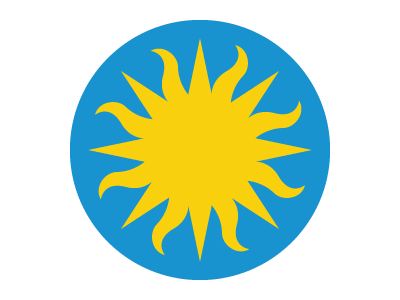 Smithsonian Institution
Smithsonian Institution
14 March 2024 7:18pm
International Day of Forests: "New Technological Innovations are Needed to Halt Deforestation and Forest Degradation" Panel
14 March 2024 12:16pm
PhD Opening: Revealing the Dynamics of Soaring Environments Through GPS and Drones
13 March 2024 2:11pm
Ph.D. Assistantship: Collared Peccary Population and Spatial Ecology in Southern Texas
13 March 2024 1:51pm
Navigating corporate due diligence in the Voluntary Carbon Market
8 March 2024 4:36pm
26 March 2024 2:11pm
27 March 2024 10:56am
29 March 2024 9:13am
Machine Learning Postdoc Position, Understory
29 February 2024 11:56pm
Data data everywhere, but not a byte to use!
29 February 2024 7:13am
Engineer in novel technologies and approaches for biodiversity monitoring
26 February 2024 6:12pm
Scaling biodiversity scoring for supply chains aligned with TNFD
20 February 2024 9:44am
Wildlife Drones will be hosting in-person demos in the U.S.
12 February 2024 3:32am
Post-doc possition - Field spanning movement ecology, ecology of fear, bio-logging science, behavioral ecology, and ecological statistics
10 February 2024 7:20am
Bio-Logging Science Symposium
9 February 2024 3:59pm
Conservation Technology Intern - The Wildlife Restoration Foundation
8 February 2024 7:52pm
Account Manager - Conservation & Nonprofit
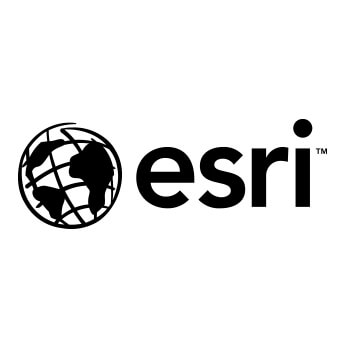 esri
esri
8 February 2024 4:30pm
Jupyter Notebook: Aquatic Computer Vision
25 January 2024 5:50am
26 January 2024 1:46pm
This is quite interesting. Would love to see if we could improve this code using custom models and alternative ways of processing the video stream.
27 January 2024 4:07am
This definitely seems like the community to do it. I was looking at the thread about wolf detection and it seems like people here are no strangers to image classification. A little overwhelming to be quite honest 😂
While it would be incredible to have a powerful model that was capable of auto-classifying everything right away and storing all the detected creatures & correlated sensor data straight into a database - I wonder if in remote cases where power (and therefore cpu bandwidth), data storage, and network connectivity is at a premium if it would be more valuable to just be able to highlight moments of interest for lab analysis later? OR if you do you have cellular connection, you could download just those moments of interest and not hours and hours of footage?
27 January 2024 6:11am
Am working on similar AI challenge at the moment. Hoping to translate my workflow to wolves in future if needed.
We all are little overstretched but it there is no pressing deadlines, it should be possible to explore building efficient model for object detection and looking at suitable hardware for running these model on the edge.
Power managment/Recharging System and Communication System
2 January 2024 4:06pm
26 January 2024 8:49am
"Seychelles and South Africa did not allow Starlink to operate"
This is not good, has implications for anti-poaching measures.
26 January 2024 9:03am
Power usage for microcontrollers with solar is much more manageable. For Raspberry Pi's and higher it gets expensive and big.
I'm quite impressed by the specs from the Goal Zero Yeti devices. This can have high capacity and be charged with Solar. Not small though. And the price is not in proportion to the Pi's.
So this 200x model for example, would be close to 16 days running the audio recorder. Let's say 10. without solar. Add solar? Depends on the size of the panels I guess. Power usage for mobile networking? Depends on how much you transmit.
Probably some well documented experiments would be really nice for people here. Sounds like something nice for the next set of grants :)
26 January 2024 2:11pm
Real nice video. I'll have another look in the weekend in detail.
Need advice - image management and tagging
12 January 2024 7:55pm
15 January 2024 8:47pm
Interesting, Iʻll give it a shot. Looks like this could save me some time.
Thanks for the explanation @wade!
24 January 2024 5:16pm
I have no familiarity with Lightroom, but the problem you describe seems like a pretty typical data storage and look up issue. This is the kind of problem that many software engineers deal with on a daily bases. In almost every circumstance this class of problem is solved using a database.
In fact, a potentially useful analysis is that the Lightroom database is not providing the feature set you need.
It seems likely that you are not looking for a software development project, and setting up you own DB would certainly require some effort, but if this is a serious issue for your work, you hope to scale your work up, or bring many other participants into your project, it might make sense to have an information system that better fits your needs.
There are many different databases out there optimized for different sorts of things. For this I might suggest taking a look at MongoDB with GridFS for a couple of reasons.
- It looks like you meta data is in JSON format. Many DBs are JSON compatible, but Mongo is JSON native. It is especially good at storing and retrieving JSON data. Its JSON search capabilities are excellent and easy to use. It looks like you could export your data directly from Lightroom into Mongo, so it might be pretty easy actually.
- Mongo with the GridFS package is an excellent repository for arbitrarily large image files.
- It is straightforward to make a Mongo database accessible via a website.
- They are open source (in a manner of speaking) and you can run it for free.
Disclaimer: I used to work for MongoDB. I don't anymore and I have no vested interest at all, but they make a great product that would really crush this whole class of problem.
25 January 2024 8:32am
Hi!
I would take a look at
Although developed for camera trap imagery, it is by no means restricted to such.
Cheers,
Lars
Ignite Labs: Space for Nature & Biodiversity Series
21 January 2024 2:46pm
Want to learn QGIS!
26 December 2023 11:49pm
17 January 2024 3:11am
Thank you for your reply.
17 January 2024 3:13am
Thank you so much for your reply and sharing the resources.
I'll surely look into them and if I face any difficulty would let you know.
Thank you.
20 January 2024 7:33am
Thank you for the links. As a trainer in GIS I have gone through them and they are very helpful for a beginner in QGIS.
Free Spatial Analysis Course: Going Places with Spatial Analysis
15 January 2024 9:42am
Free Live Training Seminar: Bring Your Imagery to Life with ArcGIS Reality
15 January 2024 9:32am





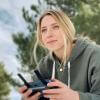









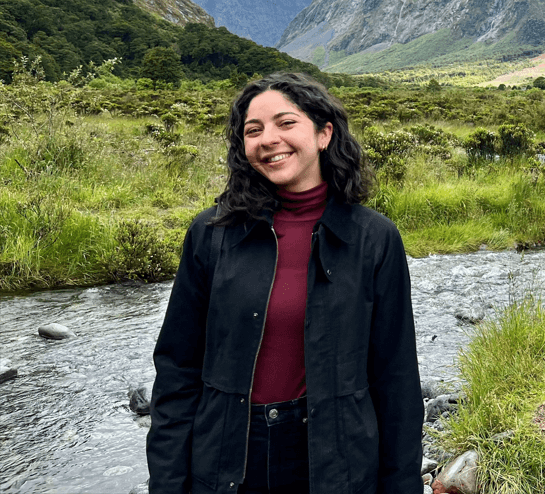













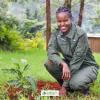
















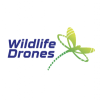

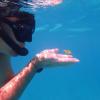





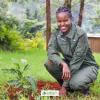

21 March 2024 9:48pm